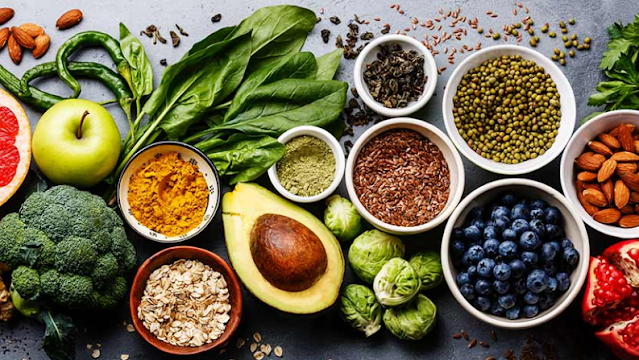Vitamin For Good Immune System ?
There are several vitamins that are important for maintaining a healthy immune system:
Vitamin C:
This vitamin is known for its immune-boosting properties. It helps in the production of white blood cells that fight off infections and acts as an antioxidant that protects cells from damage.
Vitamin D:
This vitamin plays a crucial role in the immune system by enhancing the function of immune cells and reducing inflammation. It can be obtained through sun exposure or supplementation.
Vitamin E:
This vitamin is also an antioxidant that helps protect cells from damage and supports the immune system's function.
Vitamin A:
This vitamin helps in the production of white blood cells and helps maintain the integrity of the mucosal lining in the respiratory and digestive tracts, which serves as a barrier against infections.
Vitamin B6:
This vitamin helps in the production of antibodies and supports the immune system's function.
It is important to get these vitamins from a balanced diet that includes fruits, vegetables, whole grains, lean protein, and healthy fats. In some cases, supplements may be necessary, but it is always best to consult with a healthcare provider before starting any new supplement regimen.
What Exercise Is Good Immune System ?
Regular exercise can have a positive impact on your immune system by reducing inflammation, increasing circulation, and promoting the production of immune cells. Here are some exercises that can help support a healthy immune system:
Cardiovascular exercise:
Activities such as brisk walking, jogging, cycling, or swimming can help increase blood flow, improve lung function, and strengthen the heart.
Weightlifting or using resistance bands can help build muscle and improve bone density, both of which are important for maintaining overall health.
Yoga or stretching:
These exercises can help reduce stress and promote relaxation, which in turn can boost the immune system.
High-intensity interval training (HIIT):
This type of exercise involves short bursts of high-intensity activity followed by periods of rest or lower intensity. HIIT has been shown to improve immune function in some studies.
It's important to note that excessive exercise or overtraining can have a negative impact on the immune system. It's best to aim for moderate exercise, at least 30 minutes most days of the week, and to listen to your body and adjust your activity level as needed.
What Fruits Are Good Immune System ?
Fruits are an excellent source of vitamins, minerals, and antioxidants that can help support a healthy immune system. Here are some fruits that are particularly beneficial:
Oranges, lemons, grapefruits, and other citrus fruits are high in vitamin C, which is essential for the
production of white blood cells that fight off infections.
Blueberries, strawberries, raspberries, and blackberries are packed with antioxidants that help protect cells from damage and reduce inflammation.
Kiwi:
Kiwi is high in vitamin C and also contains other nutrients such as vitamin E and potassium, which can help support a healthy immune system.
Papaya:
Papaya is rich in vitamin C, as well as an enzyme called papain, which has anti-inflammatory properties.
Apples:
Apples are a good source of fiber and vitamin C, and also contain flavonoids that have antioxidant and anti-inflammatory properties.
Pineapple:
Pineapple contains an enzyme called bromelain, which has anti-inflammatory properties and may help reduce swelling and inflammation in the body.
Mango:
Mangoes are high in vitamin C and also contain other nutrients such as vitamin A and folate, which can help support the immune system.
It's important to incorporate a variety of fruits into your diet to ensure you are getting a wide range of nutrients that can help support a healthy immune system.
What Vegetables Are Good Immune System ?
Vegetables are an important part of a healthy diet and are packed with nutrients that can help support a strong immune system. Here are some vegetables that are particularly beneficial:
Broccoli:
Broccoli is high in vitamin C and also contains other nutrients such as beta-carotene, vitamin E, and fiber, which can help support the immune system.
Spinach:
Spinach is rich in antioxidants, including vitamin C and beta-carotene, as well as iron and folate, which are important for immune function.
Sweet potatoes:
Sweet potatoes are high in beta-carotene, which the body converts into vitamin A, a nutrient that is important for immune function.
Red bell peppers:
Red bell peppers are an excellent source of vitamin C, which is essential for the production of white blood cells that fight off infections.
Garlic:
Garlic contains compounds that have been shown to have antimicrobial properties and may help support immune function.
Ginger:
Ginger contains compounds that have anti-inflammatory properties and may help reduce inflammation in the body.
Brussels sprouts:
Brussels sprouts are high in vitamin C, vitamin K, and fiber, all of which can help support a healthy immune system.
It's important to eat a variety of vegetables to ensure you are getting a wide range of nutrients that can help support immune function.


